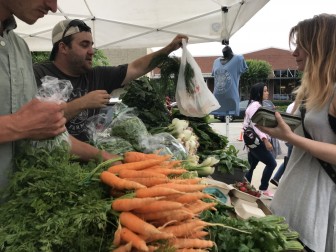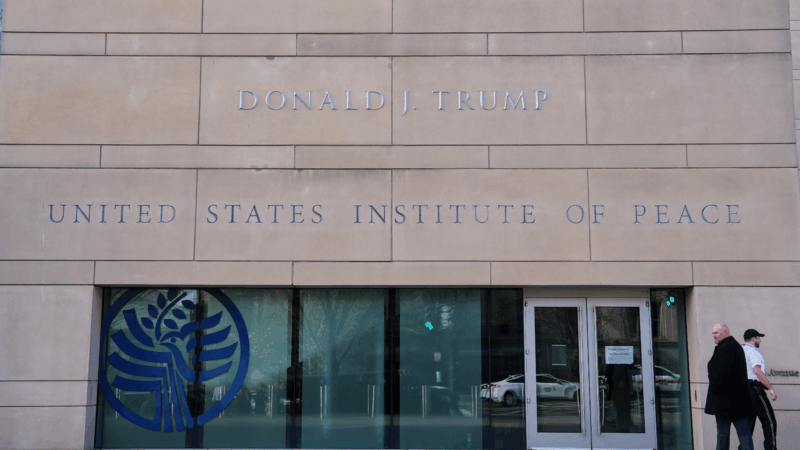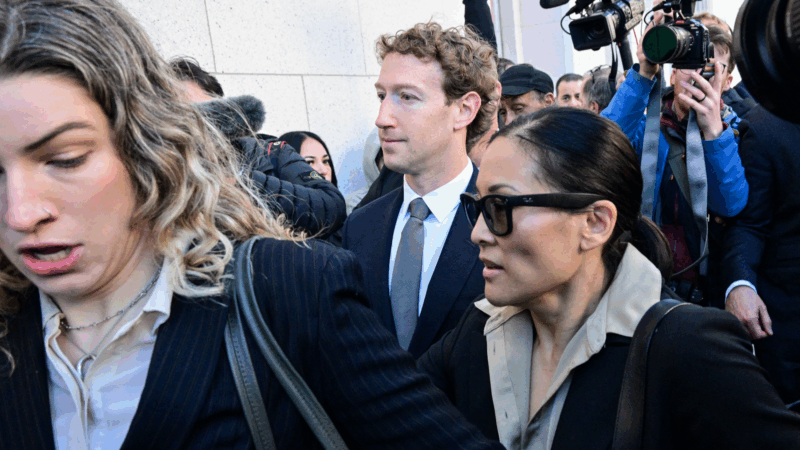Alabama Farmers Uncertain About Tomato Tariffs Effect
Tomatoes will likely soon get pricier. The Trump administration plans to impose a 17.5 percent tariff on tomatoes imported from Mexico. Those could take effect this week. Florida growers, who once dominated the market for off-season tomatoes, lobbied for the tariffs But today more than half the fresh tomatoes sold in the U.S. come from Mexico. Many Alabama growers and consumers are taking a wait-and-see approach.
During tomato season, Chef Chris Hastings uses lots of tomatoes in the dishes he creates. “We’ll probably buy anywhere from 600 to 1,000 pounds a week for both restaurants,” he says.
Hastings, who owns Hot and Hot Fish Club and OvenBird in Birmingham, says all those tomatoes go into dishes like pork belly BLT’s and gravlax with cured salmon and locally grown cherry tomatoes.
Like many acclaimed chefs, Hastings is a big supporter of local growers. The tariffs the Trump administration plans to impose on Mexican tomato imports probably won’t affect him much. It’s consumers who buy mass-produced tomatoes at the grocery store who will be hit hardest. Hastings says that’s unfortunate, but there’s also an opportunity.
“The hope would be, in my mind, we can get enough good tomatoes into the market that are grown around the South and get people introduced to what I think is a better tomato anyway and save money doing it,” he says.
But he says it’ll depend on how much the price of tomatoes increases. Economists at Arizona State University predict consumers could pay 40 to 85 percent more for fresh tomatoes. Scott Ireland of Ireland Farms in Alpine, Ala. says that won’t drive the average shopper to the farmer’s market. “When that tomato becomes too expensive for them, they’re just not going to buy,” he says. “It’s discouraging people from buying produce regardless of where it comes.”
Ireland was at his tent at the Pepper Place farmer’s market in Birmingham this past weekend selling bright green chard, carrots, and strawberries. He grows about 3,000 tomato plants a season. He says his customers are already committed to buying local.
“I think the people that have been coming here for years are coming, I don’t think anyone is going to see that this tariff is affecting Mexican tomatoes and then up and decide to come to market,” Ireland says.
Other local farmers say the tariffs won’t affect them much, either, since much of their business is selling specialty tomatoes to high-end restaurants.
But Hunter McBrayer, executive director of the Alabama Fruit and Vegetable Growers Association, says the tariffs are a step in the right direction. American tomato farmers have long struggled to compete with Mexico’s low prices. And even after the tariffs, McBrayer says those Mexican tomatoes would still be cheaper. But he says increasing the cost of Mexican tomato imports can help level the playing field, giving our domestic producers a chance at staying in business.
He says research shows consumers are willing to pay a little more for local tomatoes. And he hopes the tariffs will prompt more people to support Southern growers. Others worry the net effect of the tariffs could be higher grocery bills and less money to spend overall, including at restaurants.
José María Balcázar becomes Peru’s eighth president in a decade
José María Balcázar has become Peru's new interim president, replacing another interim leader who was removed over corruption allegations just four months into his term.
Trump gathers members of Board of Peace for first meeting, with some U.S. allies wary
President Donald Trump will gather Thursday with representatives from more than two dozen countries that have joined his Board of Peace, for a meeting that will focus on the reconstruction of Gaza.
With a win over Sweden, the U.S. men’s hockey team will play for an Olympic medal
A thrilling overtime goal by defenseman Quinn Hughes puts Team USA through to a semifinal game against Slovakia. On the other side of the bracket, Canada had its own close call, but moves on to face Finland.
Zuckerberg grilled about Meta’s strategy to target ‘teens’ and ‘tweens’
The billionaire tech mogul's testimony was part of a landmark social media addiction trial in Los Angeles. The jury's verdict in the case could shape how some 1,600 other pending cases from families and school districts are resolved.
The Trump administration is increasingly trying to criminalize observing ICE
ICE officers often tell people tracking and watching them that they are breaking federal law in doing so, but legal experts say the vast majority of observers are exercising their constitutional rights.
8 backcountry skiers found dead and 1 still missing after California avalanche
Authorities say the bodies of eight backcountry skiers have been found and one remains missing after an avalanche near Lake Tahoe in California. Six others were found alive.








